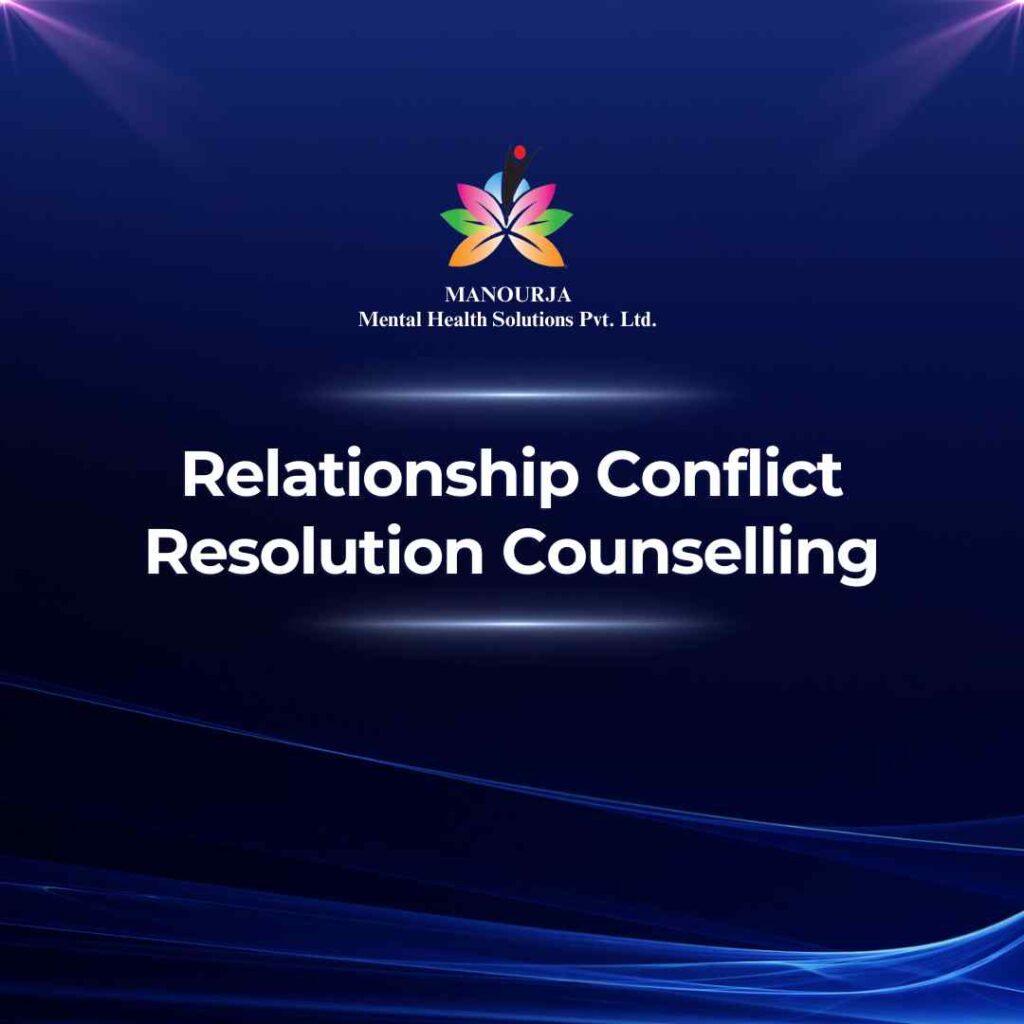Relationship Conflict Resolution Counselling

Relationship conflict arises when there are disagreements, misunderstandings, or differing needs and expectations between individuals. Such conflicts can occur in any type of relationship, including romantic partnerships, friendships, family relationships, and professional relationships.
Common Symptoms of Relationship Conflict Include
- Frequent Arguments: Regular disputes over both significant issues and trivial matters.
- Communication Breakdown: Struggling to communicate effectively, which may include shouting, abrupt conversations, or an inability to discuss feelings and thoughts openly.
- Resentment: Holding onto negative feelings about past conflicts or issues, which can lead to bitterness or anger.
- Emotional Distance: Withdrawal from the relationship or reduced emotional engagement, often as a protective measure to avoid conflict.
- Distrust: Feeling uncertain about the other person’s intentions or doubting their commitment to the relationship.
- Physical Symptoms: Stress from ongoing conflict can lead to physical symptoms such as headaches, stomach issues, or sleep disturbances.
These symptoms not only affect the individuals involved but can also impact other family members, friends, or colleagues who are indirectly involved or feel compelled to take sides.
How Counselling Effectively Treats Relationship Conflict
Counselling provides a neutral space for individuals to explore the sources of their conflicts, understand each other’s perspectives, and develop healthier communication and interaction patterns.
- Couples or Family Therapy: Focuses on improving communication, resolving conflicts, and rebuilding trust. Techniques like the Gottman Method or Emotionally Focused Therapy may be used to foster closeness and understanding.
- Conflict Resolution Training: Teaches strategies to manage disagreements constructively without escalating the conflict. This includes learning to listen actively, express needs clearly without blame, and negotiate solutions that accommodate all parties.
- Individual Therapy: Sometimes, individual sessions are necessary to address personal issues that contribute to relationship conflicts, such as past trauma, anxiety, or depressive symptoms.
- Mediation: In cases involving professional or legal disputes, mediation sessions facilitated by a trained counselor can help resolve conflicts in a structured manner.
Steps Followed in MANOURJA for Counselling of People with Relationship Conflict
- Initial Assessment: Gather detailed information about the nature of the conflict, each person’s perspective, and the history of the relationship.
- Goal Setting: Establish clear objectives for what each party hopes to achieve through Counselling, such as improved communication, resolved conflicts, or restored trust.
- Development of a Personalized Treatment Plan: Create a tailored plan that may involve couples therapy, family therapy, mediation, or individual Counselling based on the specific needs of the situation.
- Regular Counselling Sessions: Engage in structured sessions designed to explore and understand the conflict, practice new skills, and make progress towards resolution.
- Continuous Monitoring and Adaptation: Regularly assess progress and make necessary adjustments to the therapy approach to ensure it continues to meet the evolving needs of those involved.
Through Counselling, MANOURJA aims to assist individuals and groups in resolving their conflicts, enhancing their relationships, and improving overall emotional well-being and harmony.
“Each new day is another chance to mend bridges, deepen connections, and strengthen bonds.”
